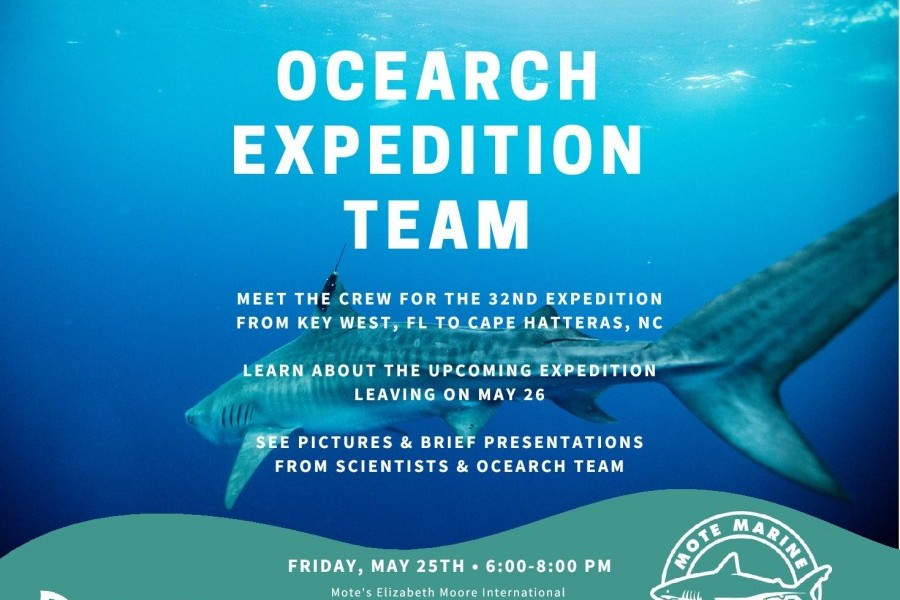Mote to Host ‘Meet & Greet’ with Scientists from Upcoming OCEARCH Key West Expedition
Written by Allison Delashmit
On Friday, May 25, Mote Marine Laboratory will host a “Meet & Greet” reception with OCEARCH on Summerland Key, Florida. This reception, from 6-8 p.m. at Mote’s Elizabeth Moore International Coral Reef Research and Restoration (IC2R3), will feature an overview of OCEARCH’s upcoming expedition from its Founding Chairman and Expedition Leader, Chris Fischer. Guests can also meet collaborating scientists involved in the expedition, including Dr. Robert Nowicki, Postdoctoral Research Fellow at Mote.
The free Meet & Greet is open to the public and all ages are welcome. Drinks and light appetizers will be served. Mote’s IC2R3 is located at 24244 Overseas Highway (mile marker 24) on Summerland Key. RSVP encouraged: Visit mote.org/ocearchrsvp or call 305-745-2729.
OCEARCH is gearing up for a research expedition in the Gulf Stream, to tag and sample sharks, study other pelagic fishes, and collect a variety of other data on ocean currents and marine life. The “Gulf Stream Drift” expedition will launch May 26 from Key West, Florida, and head to Cape Hatteras, North Carolina, over a three-week period. OCEARCH is a non-profit organization that generates critical scientific data through tracking (telemetry) and biological studies of keystone marine species such as great white and tiger sharks, then shares the near real-time migration data through its Global Shark Tracker. Dr. Bob Hueter, Director of the Center for Shark Research at Mote and OCEARCH’s Chief Science Advisor, notes that this expedition differs from prior ones.
“While each OCEARCH expedition offers its own unique opportunities to learn and explore, we are particularly excited about this one because it will be the first time any research expedition has drifted with the Gulf Stream, without a specific path and itinerary,” Hueter said. “This expedition will be multi-disciplinary, involving scientists and students interested in collecting data on sharks, other fishes, ocean eddies, sargassum communities, birds, mammals, sea turtles and more. It’s a significant amount of data to gather in just over a three-week period.”
Among other activities during this expedition, Nowicki from Mote will perform plankton tows to search for lionfish larvae in the surface waters of the Gulf Stream, in partnership with collaborators from around Florida. He will also deploy subsurface stationary cameras underneath sargassum, and if possible, plastic debris habitats to better understand the associated communities and how they change over the course of the expedition.
